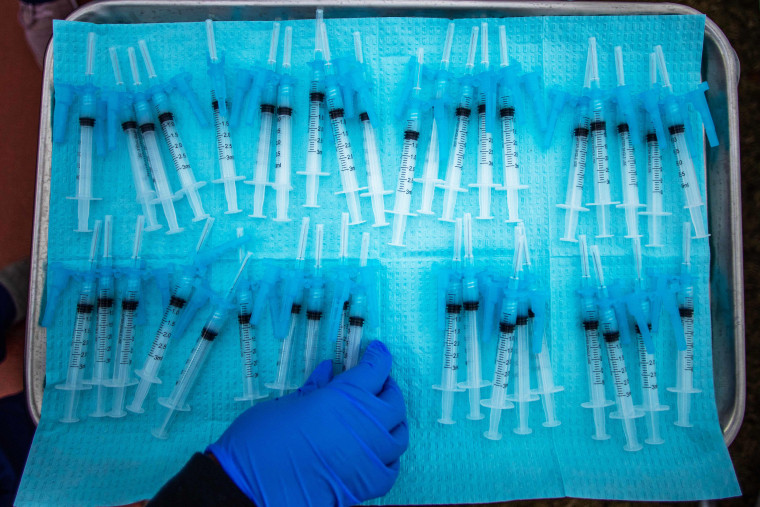WASHINGTON — President Joe Biden will announce plans to contribute up to $4 billion to a global Covid-19 vaccine program aimed at assisting developing countries, a move officials argue will bolster American national security interests by helping control the pandemic globally.
The United States will contribute an initial $2 billion in the coming days to a World Health Organization-backed program called COVAX that supports access to vaccines for 92 countries. The remaining $2 billion will be contributed over the next two years, including another $500 million when other donor pledges are fulfilled and initial doses are delivered.
Full coverage of the coronavirus outbreak
While millions of Americans are still waiting to get access to the vaccine, administration officials said that contributing the funds, which were specifically appropriated by Congress in December for foreign pandemic assistance, will help Americans by reducing the risk of further mutations that could extend the pandemic.
“We do think that it is vital to take a role in beating the pandemic globally and to really put U.S. leadership out there to do this,” a senior administration official said. “It's critically important to surge vaccination globally, while we'll of course prioritizing vaccinations here at home.”
The move highlights Biden's different approach to global affairs after former President Donald Trump withdrew from the WHO and signed an executive order prioritizing vaccines for Americans before helping other countries. Still, senior administration officials said the U.S. will only consider donating vaccines to lower-income countries once enough supply has been secured to vaccinate all Americans, contrary to what some global health organizations requested.
Download the NBC News app for full coverage of the coronavirus outbreak
The global aid organization UNICEF has said countries that have vaccinated their own health workers and populations at highest risk of severe disease should share vaccine doses with other countries so they can do the same. Nearly 130 countries, with 2.5 billion people, have yet to administer a single dose, the group said Feb. 10, which UNICEF called a “self-defeating strategy” that will give further opportunity for the virus to mutate.
It is also unclear how much the funding will help in the short-term. Some global health officials have complained that funding isn't the issue when it comes to getting the vaccine quickly to developing countries because there isn't enough vaccine to buy, a problem the U.S. has contributed to by snatching up hundreds of millions of doses for Americans.
Biden will make the announcement at a virtual meeting Friday of G-7 leaders where the global pandemic response is expected to be the focus of the gathering.

